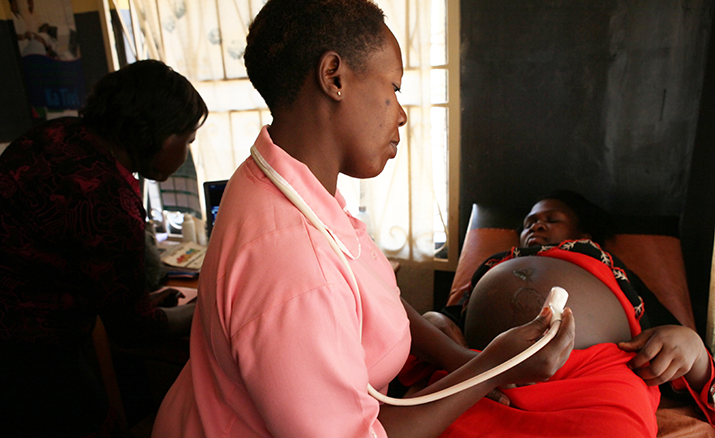Report and Webinar on Integrating Oxytocin into Vaccine Cold Chain
Report and Webinar on Integrating Oxytocin into Vaccine Cold Chain

Excessive bleeding after birth is the leading cause of maternal mortality worldwide, killing nearly 200 women a day. Oxytocin is a lifesaving medicine that prevents postpartum hemorrhage in women, but it is sensitive to heat, and refrigeration for essential medicines is limited in many low- and middle-income countries.
MSH was awarded an Innovation Fund grant from the Reproductive Health Supplies Coalition to facilitate integration of oxytocin into the vaccines cold chain, as a cost-effective solution to overcoming weaknesses in cold chain infrastructure.
MSH undertook a scoping exercise in Kenya, Malawi, and Uganda to assess the acceptability and feasibility of integrating oxytocin into the vaccine cold chain.
A pilot phase continued in Uganda, where MSH with support from the USAID-funded Uganda Health Supply Chain (UHSC) Program led a complex collaboration among key stakeholders, the Ministry of Health and partners involved in pharmacy and supply chain, immunization programming, and maternal and child health. After a successful demonstration phase in two districts, the Ministry of Health has committed to implementing the solution nationwide.
The project’s final report outlines the initial scoping in all three countries and the implementation phase in Uganda and a recent webinar shares experiences from the pilot in Uganda, as well as related challenges and opportunities, which is also documented in this report.
Webinar presenters Eric Jemera Nabuguzi, Principal Technical Advisor for USAID’s UHSC Program implemented by MSH, and Jane Briggs, Senior Principal Technical Advisor at MSH, share how MSH through the RHSC innovation grant and the UHSC project, supported Uganda’s Ministry of Health in this effort. Work included the development of procedures and guidelines to integrate oxytocin into the Expanded Program on Immunization (EPI) refrigerators at district and health center levels, to standardize how oxytocin was managed, and to minimize the risk to the integrity of the vaccine cold chain. Presenters share lessons learned and best practices from MSH’s experience in Uganda, with recommendations for taking this strategy to scale.
Related: Saving Mothers during Childbirth: Using the Vaccine Cold Chain to Keep Oxytocin Cold